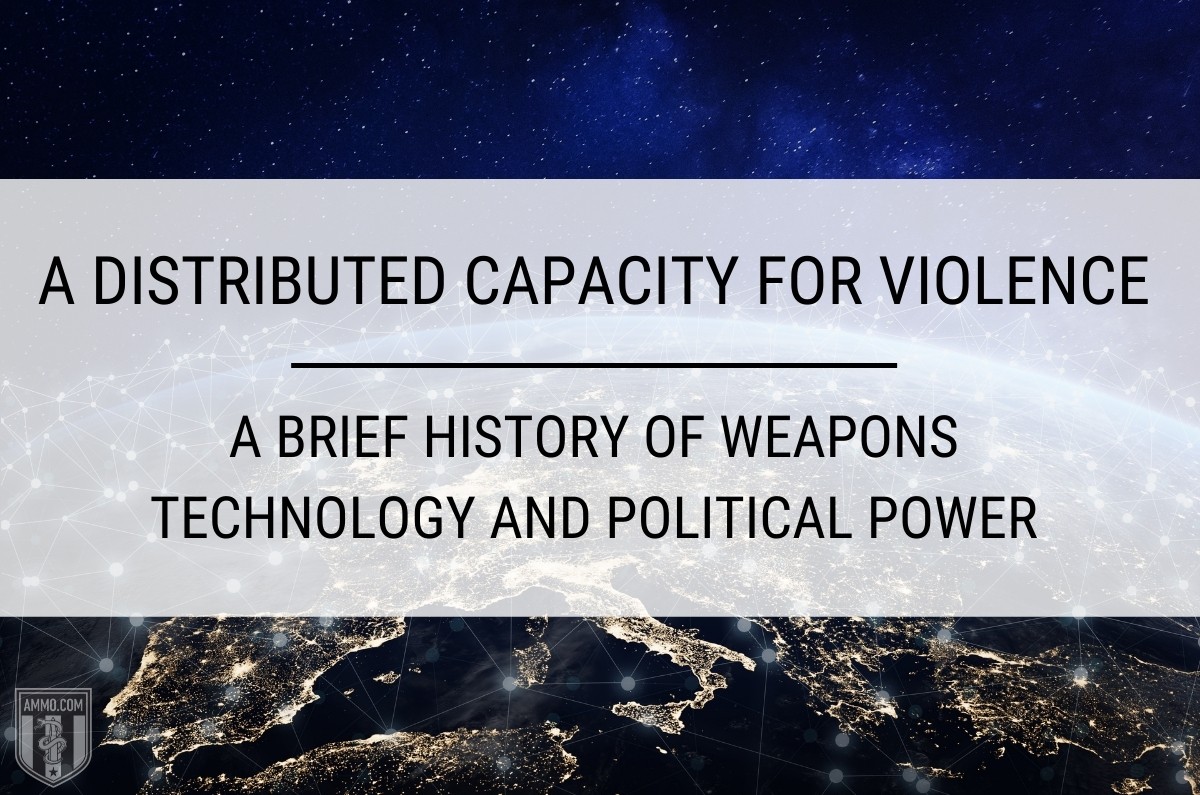
The Constitution contains a powerful set of ideals and a wise system of governance, based on a deep reading of classical and medieval history as well as Renaissance philosophy. However, none of this matters if no system of force is in place to keep and defend the Constitution.
Ultimately, this what the 2nd Amendment is about: A distributed capacity for violence guaranteed to private citizens so that they may serve as a check and balance on the power of the state.
America’s Founding Fathers understood an uncomfortable truth: Behind every law is the implicit threat of force, and behind every vote is the implicit threat of rebellion. Such a bargain is what holds a free society together. And no society with a wide power imbalance remains free for very long.
This truth was predicated upon the Founders classical education and their deep understanding of the power dynamics underpinning the systems of governance during the Roman Republic and Ancient Athens. The Roman Republic in particular influenced their views. Why? Because it provided not simply a template for government, but a historical warning about what can happen to a republic if precautions are not taken to ensure its survival.
Thus the Constitution intentionally contained concepts like separation of powers and a system of checks and balances. These concepts were predicated upon a core truth, as eloquently stated by Thomas Jefferson in the Declaration of Independence: ‘Governments are instituted among men, deriving their just powers from the consent of the governed.’”
If you picture political power as a pyramid, the intention of the Founders was clear: The individual was paramount, having natural rights, and the individual would then delegate a portion of his or her political power to the state – hence, the state governed with the individual’s consent.



An outstanding article. Good find.
“The problem of a highly centralized capacity to commit meaningful violence is structural. There are no clear solutions. A revolution in military technology is needed to rebalance the scales. In the meantime, however, each man can do his part to carve out a small fortress in defense of liberty, keeping the flame of liberty alive in our homes and our communities.
There are alternatives to this kind of serfdom, however, that don’t require waiting for the development of power armor or another leveling development in military technology. Above all, it is important to make oneself as antifragile as possible which means accumulating valuable skills, having multiple revenue streams, and, above all, hoping for the best while preparing for the worst (emphasis mine).
Such moves towards greater resiliency in the face of overwhelming state military power and centralized force do not just protect you and yours. They provide a small, but important bulwark against tyranny, reasserting the implied threat of rebellion.”
As Americans we are (as the article says) in a precarious position. Resiliency is critical, both for us as individuals, but also as a community, and even more so, as a movement. We can never have too many skills.